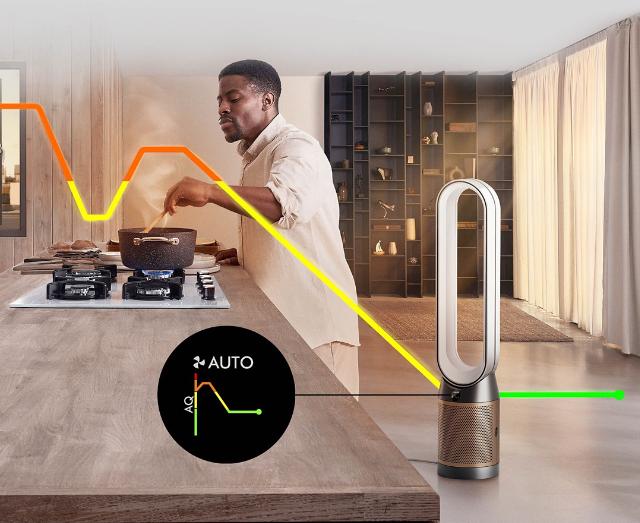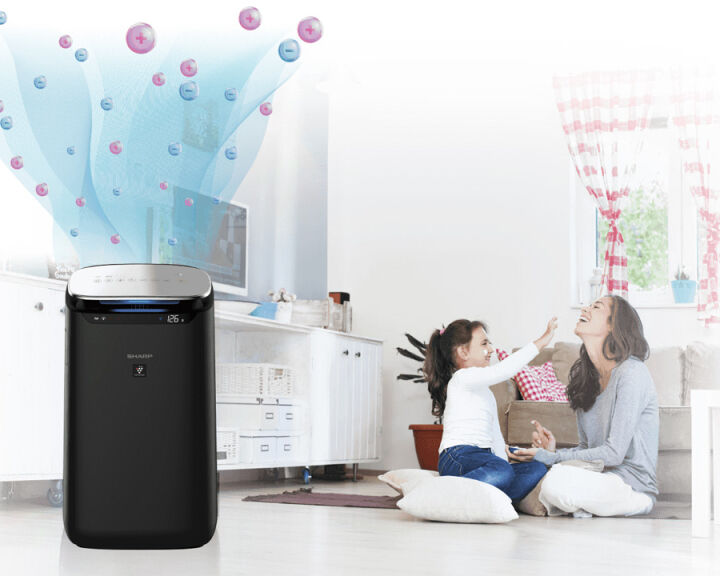Featured
Table of Contents
- – Recognizing Allergies and Triggers
- – Can Air Purifiers Aid With Allergies?
- – The Science Behind Air Purifiers and Allergies
- – Are Air Purifiers Right for You? Variables to...
- – Maximizing Air Purifiers for Allergies
- – Beyond Air Purifiers: A Multi-Pronged Method t...
- – Living a Breath Easier Life with Allergies

For allergy sufferers, springtime blooms and cosy pets can bring more sniffles and sneezes than pleasure. Indoor allergens like dirt termites, pet dog dander, and plant pollen can damage your respiratory system, leaving you really feeling unpleasant. Air purifiers are commonly promoted as a service, promising cleaner air and relief from allergic reaction symptoms. Yet are air purifiers absolutely worth the investment for allergy patients? This thorough guide checks out the scientific research behind air cleansers, their effectiveness for allergic reactions, and the aspects to take into consideration when choosing.
Recognizing Allergies and Triggers
To recognize the duty of air purifiers, allow's first look into allergies and their triggers:
- The Sensitive Reaction: Allergies happen when your body immune system panics to a harmless substance, like plant pollen or dirt termites. This response activates the launch of histamines, triggering allergy symptoms like sneezing, coughing, itchy eyes, and a dripping nose.
- Usual Irritants: Indoor irritants consist of allergen, animal dander, mold and mildew spores, plant pollen that wanders indoors, and also roach allergens. These air-borne bits can aggravate your airways and cause allergic reaction signs and symptoms.
Can Air Purifiers Aid With Allergies?
Air cleansers work by drawing in air, filtering system out toxins, and launching cleaner air back into the space. Right here's how they can possibly benefit allergy victims:
- Trapping Irritants: HEPA (High-Efficiency Particulate Air) filters, a typical kind used in air purifiers, are highly efficient at capturing airborne allergens like dirt mites, animal dander, and pollen. By getting rid of these triggers from the air you take a breath, air purifiers can help in reducing allergy signs and symptoms.
- Improved Air Top Quality: Air purifiers can additionally get rid of various other irritants from the air, such as smoke, dust, and volatile natural substances (VOCs) This general improvement in air high quality can be useful for allergy patients who are sensitive to these extra triggers.
The Science Behind Air Purifiers and Allergies
Researches have actually revealed that air cleansers can be practical in lowering allergy signs and symptoms. Here's a consider some essential research study findings:
- A 2019 review published in the journal "Existing Allergy and Asthma Reports" concluded that air cleansers with HEPA filters can be efficient in reducing allergy symptoms and boosting quality of life for individuals with hay fever (hay high temperature)
- A 2018 study released in the journal "Annals of Allergy, Bronchial Asthma & Immunology" found that utilizing an air purifier with a HEPA filter in the room significantly minimized dust mite allergen degrees and enhanced sleep quality in people with asthma.
Nonetheless, it is essential to note that research additionally suggests some restrictions:
- Air Purifier Insurance Coverage: Air cleansers are most reliable in the space where they are positioned. Their impact on irritants in various other components of your home may be very little.
- Seriousness of Allergies: While air cleansers can aid, they might not be a complete option for severe allergic reactions. Medicines and various other allergic reaction administration strategies may still be required.
Are Air Purifiers Right for You? Variables to Consider
Below are some crucial elements to consider when choosing if an air purifier is worth it for your allergies:
- Intensity of Allergies: If your allergic reactions are light and well-controlled with medication, an air purifier might not be essential. For those with moderate to serious allergies, an air purifier can be a beneficial device in handling signs.
- Kinds of Allergens: Consider the primary triggers for your allergies. Air cleansers are most effective for air-borne irritants like dirt termites, pet dog dander, and pollen. They may not be as handy for irritants like mold and mildew that expand on surfaces.
- Way of living and Atmosphere: If you have pet dogs, stay in a location with high plant pollen counts, or have worries concerning interior air top quality, an air purifier can be advantageous.

Maximizing Air Purifiers for Allergies
If you decide to buy an air purifier for allergies, below are some tips for maximizing its performance:
- Pick a HEPA Filter: Try to find an air purifier with a HEPA filter accredited to capture particles as little as 0.3 microns.
- Right Size for the Space: Ensure the air purifier has a Clean Air Distribution Price (CADR) that is appropriate for the size of the space you prepare to utilize it in.
- Positioning Matters: Place the air purifier in the room where you invest one of the most time, such as your bedroom.
- Regular Filter Upkeep: Replace HEPA filters according to the supplier's directions to maintain optimal efficiency.
- Combine with Other Techniques: Air purifiers are not a one-size-fits-all solution. Integrate them with various other allergic reaction administration strategies like medication, routine cleaning, and allergen-proof bed linens.
Beyond Air Purifiers: A Multi-Pronged Method to Allergy Management

While air cleansers can be a useful device in your allergy arsenal, they are not a magic bullet (If you're looking to buy an Air Purifier then Air Cleaners Australia is the best destination.). An extensive method that integrates air filtration with other approaches is essential to accomplishing long-term allergy alleviation. Right here are some added techniques to think about:
- Medicine: Antihistamines, decongestants, and nasal corticosteroids, recommended by your medical professional, can efficiently manage allergy signs.
- Allergic Reaction Testing and Immunotherapy: Determining your particular irritants via allergy testing can lead the way for immunotherapy, a treatment that assists desensitize your body immune system to allergens over time.
- Air High Quality Administration: Regular cleansing with a HEPA-filtered vacuum cleaner and allergen-specific cleaning products can dramatically minimize allergen, pet dander, and other irritants in your home.
- Controlling Humidity: Mold and mildew prospers in moist settings. Making use of a dehumidifier can aid manage humidity degrees and avoid mold and mildew growth, a typical indoor allergen.
- Way of living Adjustments: If you have hatreds plant pollen, staying inside during top plant pollen seasons and showering after hanging around outdoors can aid minimize exposure.
- Bed linens and Surface Areas: Framing pillows and bed mattress in allergen-proof covers can substantially minimize dust mite direct exposure. Consistently cleaning bed linen in warm water assists remove irritants.
Living a Breath Easier Life with Allergies
Bear in mind, managing allergic reactions is a constant process. By comprehending your triggers, executing a multi-pronged method, and possibly including an air purifier into your method, you can significantly minimize allergy signs and breathe simpler.
Extra Factors To Consider:
- Consulting a Doctor: If your allergic reactions are extreme or not well-controlled with medicine and lifestyle modifications, get in touch with a specialist for personalized recommendations.
- Air Quality Surveillance: Think about making use of an air high quality display to track irritant degrees in your house and change your monitoring methods appropriately.
- Long-Term Financial investment: A top quality air purifier can be a lasting financial investment in your health and health.
By taking a proactive approach and taking on a combination of these strategies, you can create a much healthier and allergy-friendly setting, permitting you to delight in a breath easier life.
Table of Contents
- – Recognizing Allergies and Triggers
- – Can Air Purifiers Aid With Allergies?
- – The Science Behind Air Purifiers and Allergies
- – Are Air Purifiers Right for You? Variables to...
- – Maximizing Air Purifiers for Allergies
- – Beyond Air Purifiers: A Multi-Pronged Method t...
- – Living a Breath Easier Life with Allergies
Latest Posts
Fascination About Can Yeti Ramblers Handle Dishwasher Cleaning?
Getting My Is Washing Yeti Ramblers In The Dishwasher A Good Idea? To Work
Are Air Purifiers Well Worth It for Allergic reactions? Breathing Easier with Science-Backed Solutions
More
Latest Posts
Fascination About Can Yeti Ramblers Handle Dishwasher Cleaning?
Getting My Is Washing Yeti Ramblers In The Dishwasher A Good Idea? To Work
Are Air Purifiers Well Worth It for Allergic reactions? Breathing Easier with Science-Backed Solutions